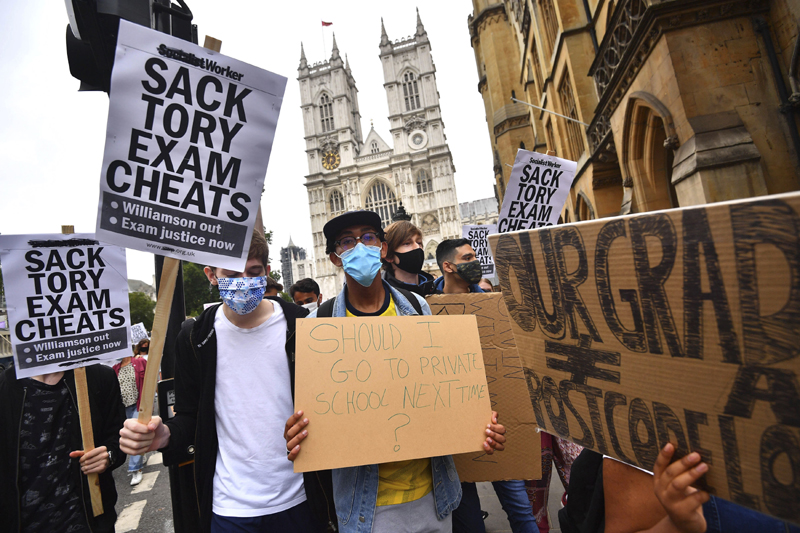Confusion over exams in England as regulator pulls guidance
LONDON: The British government was urged Sunday to "get a grip" over how grades are being awarded to school students in England, who were unable to take exams earlier this summer because of the coronavirus pandemic.
The latest confusion emerged late Saturday when English exam regulator Ofqual launched a review on its own just-published guidance on how students can appeal grades awarded under a complicated system.
In a brief statement hours after issuing the guidance, Ofqual said the policy setting out the criteria for students to make appeals was "being reviewed" by its board and that further information would be released "in due course."
No reason was provided for the sudden change, a development that is likely to cause further upset and anxiety among teenagers, especially those 18 years old, who received results for their final-year A-level exams last week.
The change has piled more pressure on Education Secretary Gavin Williamson, who has also faced acute criticism for failing to get all schools back in June as originally planned. One leading lawmaker from the governing Conservative Party said the confusion is "unacceptable."
Hundreds of thousands of students had their exams, including GCSEs traditionally taken two years before A-levels, canceled earlier this year because of the pandemic. The grades are vital for many college and job applications. GCSE results are due on Thursday.
Because students couldn't take exams, the regulator is issuing grades based on a complicated "moderation" algorithm that saw almost 40% of A-level students receive lower grades than those predicted by their teachers. The government has said the process was necessary to prevent "grade inflation" that would render the results worthless.
Critics have said there are flaws in the method, not least because a link with a school's past performance has meant thousands of bright students were effectively discriminated against because they were at a historically underperforming school.
Last week, Williamson said students could take whatever grade was higher between the teacher's predicted grade or any trial exam they took before the pandemic. He also said students could take an exam in the autumn instead.
However, in its document Saturday, Ofqual said that if the trial result was higher than the teacher's prediction, then the latter would take precedence.
Robert Halfon, chairman of the education committee of lawmakers, said the situation is a "huge mess" and "unacceptable."
"Students and teachers are incredibly anxious — particularly the students who are worried about their future," he told the BBC. "This has got to be sorted out."
And Kate Green, the education spokeswoman for the main opposition Labour Party, said Prime Minister Boris Johnson needs to "get a grip" and provide clarity to students.
"A credible appeals system should have been the government's first priority, but three days later there is absolutely no clarity on how young people can challenge their unfair grades," she said.
Some students are looking to take legal action against the regulator to get the downgrades overturned by the courts.






